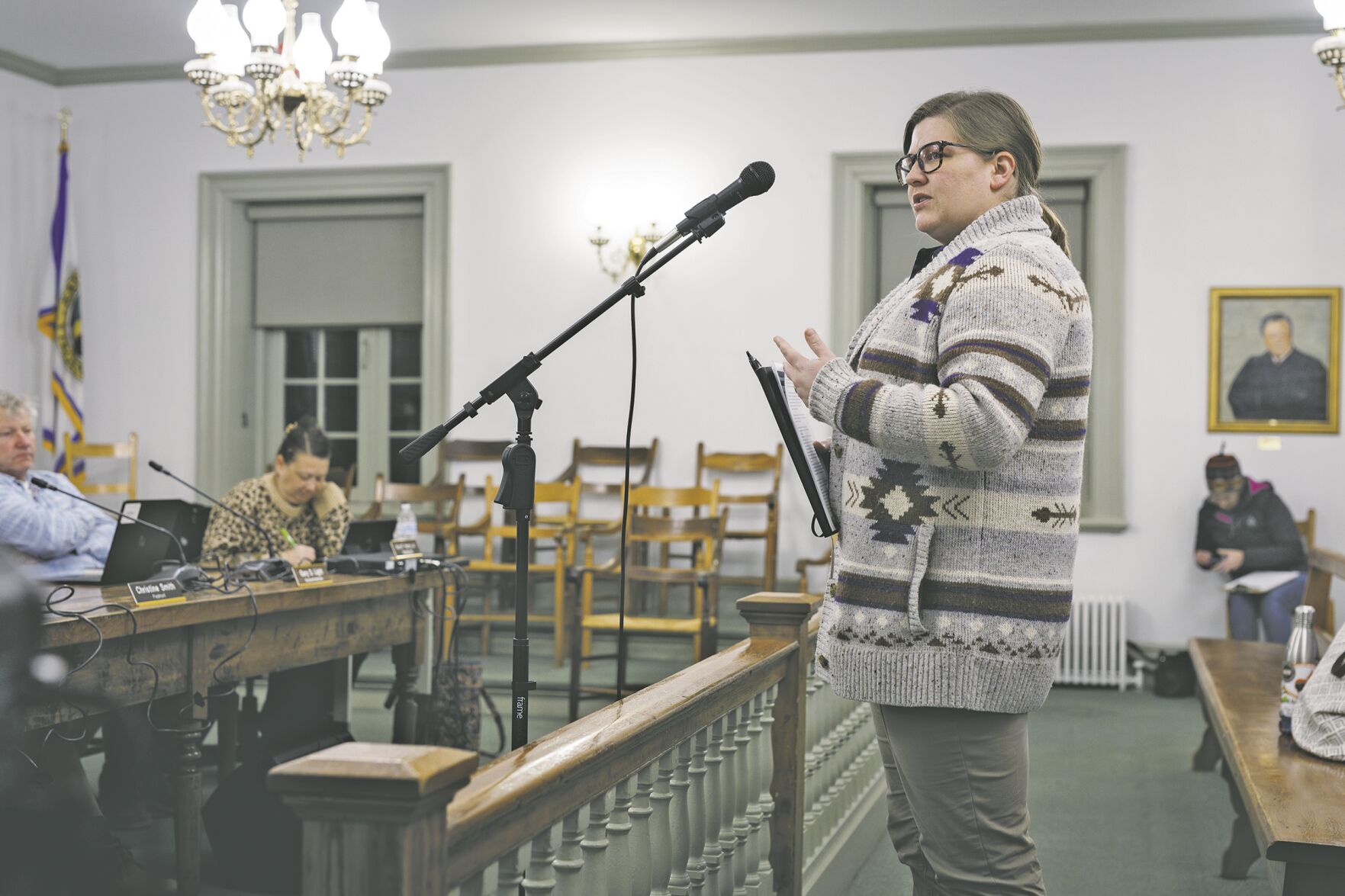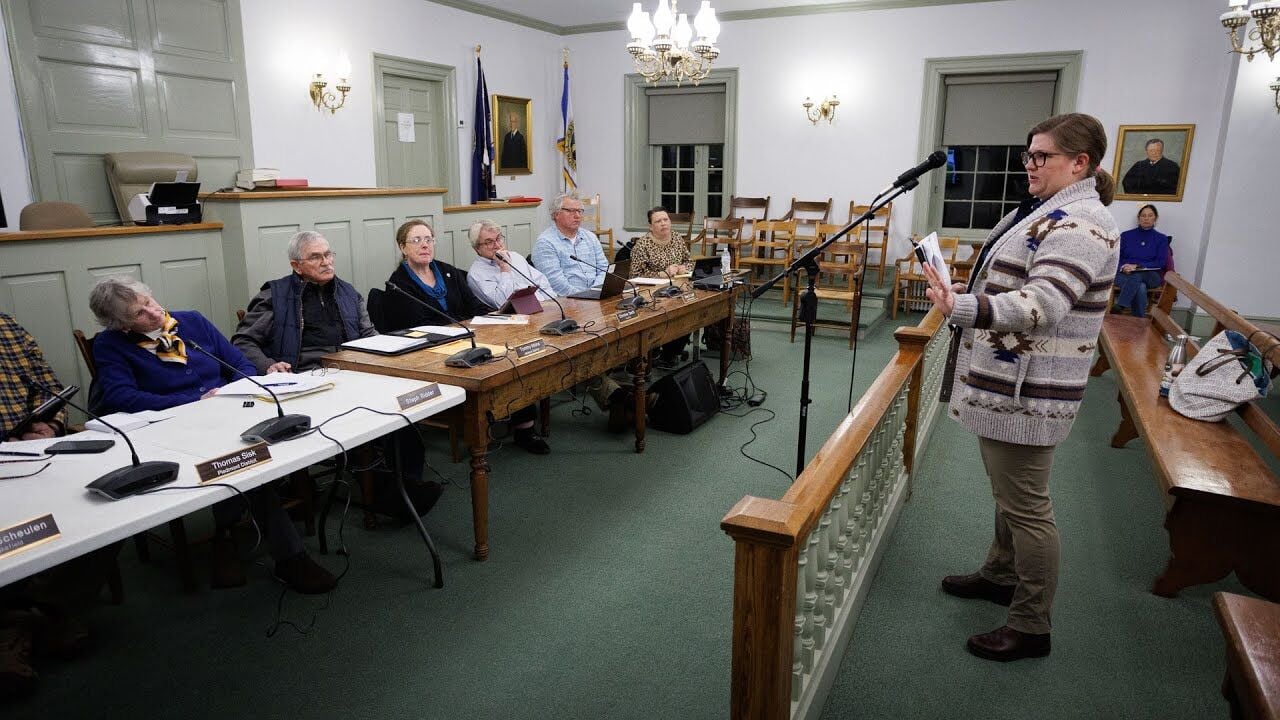Piedmont Environmental Council ‘keeping an eye’ on power line updates
The Piedmont Environmental Council (PEC) considers data centers “very unlikely” in Rappahannock County under its current zoning ordinance, a representative of the Warrenton-based nonprofit told Rappahannock’s Planning Commission recently.
Sarah Parmelee, PEC’s land use field representative for Rappahannock and Culpeper counties, gave that assessment in a Jan. 15 presentation to the commission at its monthly meeting, detailing what a data center is, how centers are “in many ways a necessity” in today’s digital world and that their presence is expanding rapidly in Northern Virginia.
Parmelee said under Rappahannock’s current ordinance, data centers are essentially “pocket vetoed” and they are “very unlikely” to be allowed under one of the current zoning categories.
She said in conversations with PEC’s senior advisor and director of strategic partnerships John McCarthy, who formerly served as county administrator in Rappahannock, McCarthy said the county is not at risk of “having a Clevengers Corner pop up.”
“Of course I am not a zoning expert … I would defer to any opinions by your excellent county staff. But as far as I know, because you all do not have data centers defined in your code or ordinance, and you have very few industrial lands and the uses allowed on your industrial land are very, very limited, in some ways I think you’ve pocket vetoed future data centers,” Parmalee said. “It’s very unlikely that they would be allowed under any of your categories right now.”
Watch the meeting:
At the commission’s July meeting, County Administrator Garrey Curry said data centers “are not allowed” in the county, and the term “data center” is not mentioned in the ordinance. He said at the time he did not recommend changing the ordinance beyond possibly adding the short phrase “a warehouse is not a data center.”
“Any ordinance that says ‘we don’t allow data centers’ could be potentially reversed by whatever the next board decides to do,” Parmalee said. “I think by not having anything, you’re probably just as safe as saying ‘no data centers.’ But I would of course defer to your staff.”
Parmalee said Rappahannock is more of a “flyover state” when it comes to data centers, as the county does not have a “robust fiber network” or major water sources — which are used to cool equipment in data centers — and only a few major transmission lines. She said Rappahannock is “not at risk” of existing properties redeveloping for data centers unless there are “significant additional changes” in the ordinance.
Commission member Stephanie Ridder asked if power lines will be an area of concern for the county, and Parmalee said they “could be a big issue” and that larger power infrastructure is “a problem that’s quickly coming to everyone’s backyard.”
“For better or for worse, everyone it seems is getting a new transmission line or an upgraded transmission line,” Parmalee said.
An infrastructure update is in the works for a major transmission line running from Luray to Sperryville, which provides most of the county’s power.
Representatives from FirstEnergy, the company overseeing the updates, said new, stronger poles — which will replace 40-year-old wooden poles at the end of their lifespan — could allow for higher voltages and capacity, but the company is not planning for an increase.
“This is not a data center project,” director of external affairs Dan Tompkins said during November’s Board of Supervisors meeting.
Christine Smith, Planning Commission chair and Piedmont supervisor, said when FirstEnergy presented their plans to the Board of Supervisors, they were clear that the intention of the upgrade is not to increase voltage or capacity of the line.
“The folks that visited us to discuss those transmission lines sort of [said] ‘cross your heart and hope to die,’ that it was not an increase and it was not for anything like data centers in the future. But like you said, things can change,” Smith said. “We don’t want to be caught on our heels.”
Parmalee said PEC is continually monitoring these infrastructure updates and electrical companies in the region.
“We keep an eye on it … unfortunately, once the data center has been approved, the transmission line becomes a matter of when and where, not if,” she said. “Hopefully Rapp gets bypassed as much as possible, but as far as I know there’s not a lot that can be done except watch.”
Background: Data centers potential impact on our area





